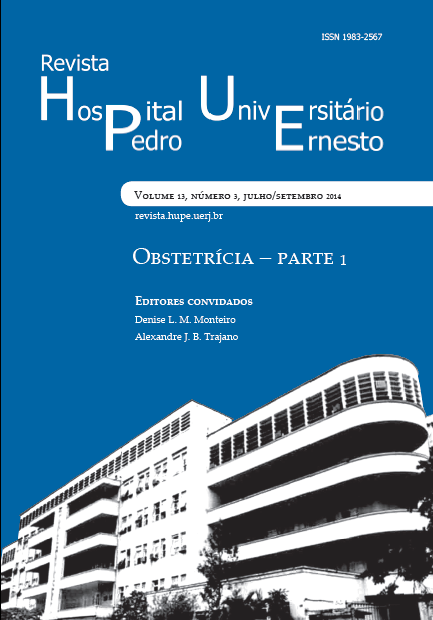Fetal alcohol syndrome - systematic review
DOI:
https://doi.org/10.12957/rhupe.2014.12128Abstract
The consumption of alcohol (ethanol) by the mother during the pregnancy can result in a range of consequences related to the neurodevelopment, including mental delay and deficiencies in the cognitive capacity, attention, executive function, motor control and behavior. The assembly of those manifestations is known like Fetal Alcoholic Syndrom (SAF). The objective of this study is going to identify the possible effects of the use of the ethanol during the pregnancy about the human embryonary. It was carried out broad research in the medical literature finding identify and extract information of the international and national literature by means of the following databases: Medline (by means of the PubMed), SciELO, LILACS and Cochrane. The main complications of the fetuses, whose mothers did use of the alcohol in the pregnancy are: low birth weight, intrauterine growth restriction, prematurity, delay in the neurodevelopment and microcefalia.The use of alcohol between the women in fertile age is avoidable cause of congenital anomalies and deficiencies of development. To prevent SAF is recommended to avoid alcohol in the gestation, due to the fact that still difficult to defined the minimum dose that is going to affect the development of the embryo.Downloads
Published
2014-07-29
Issue
Section
Artigos


